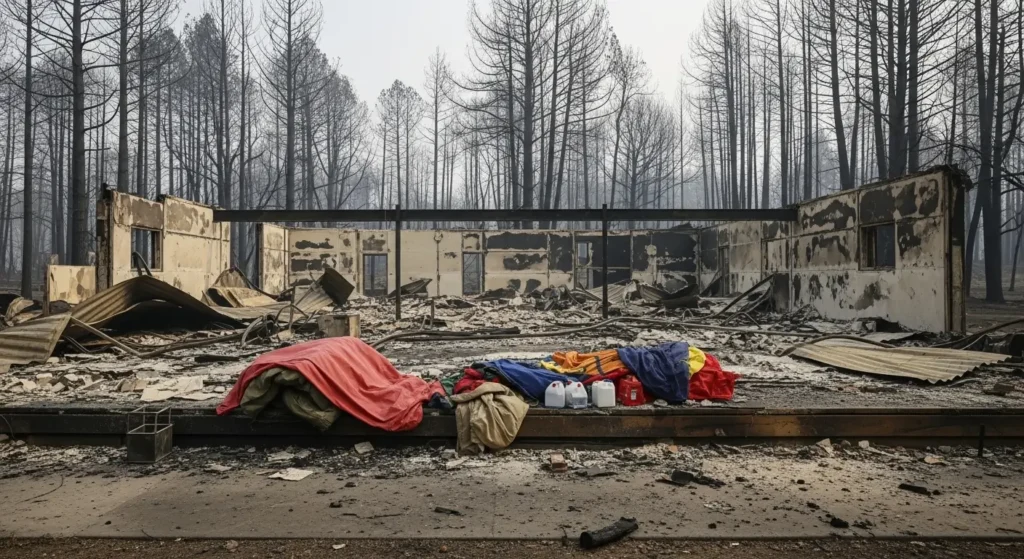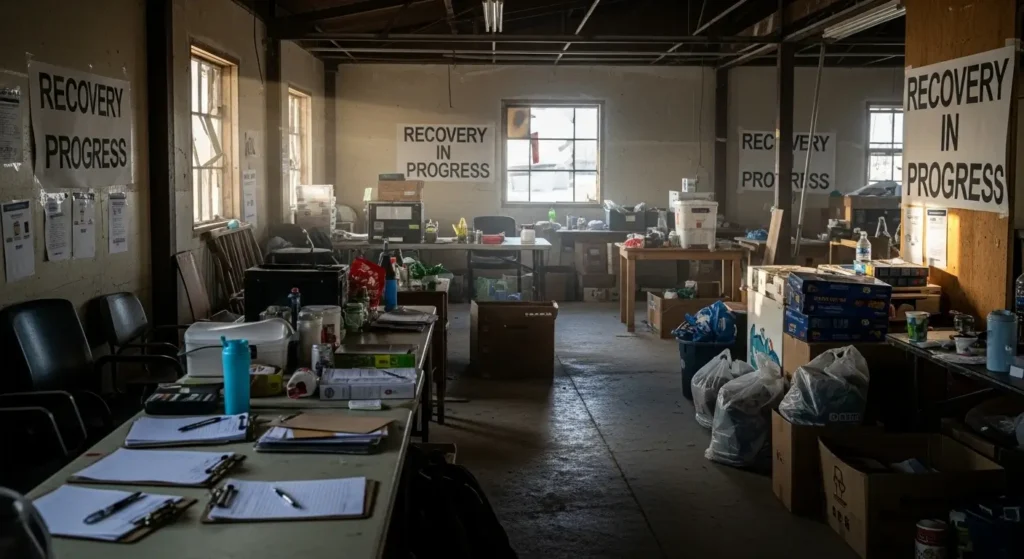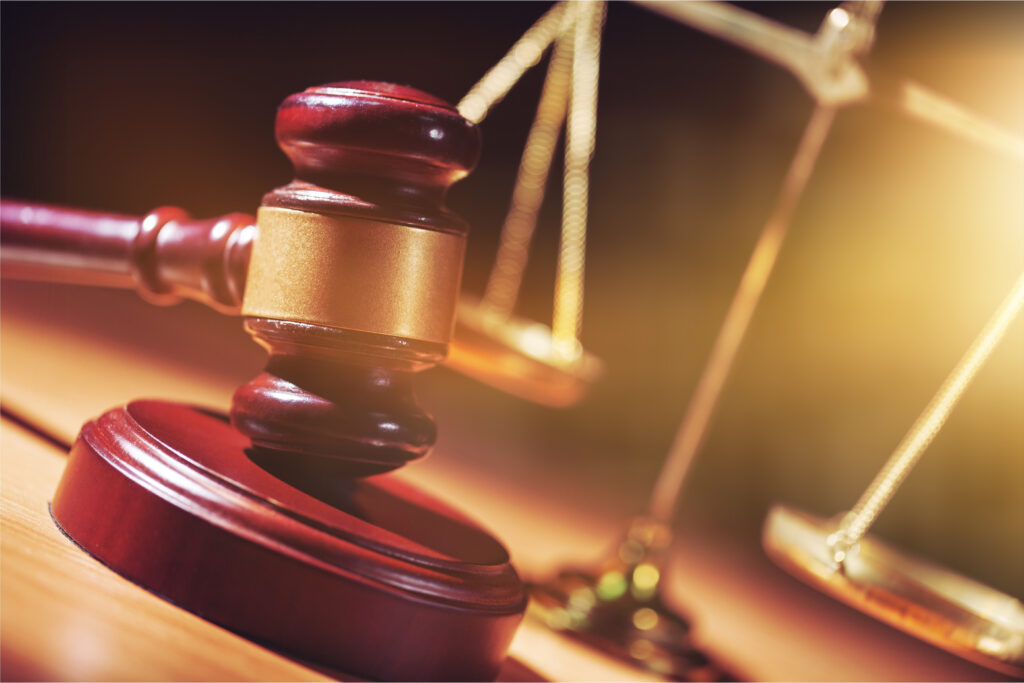Wildfires caused by utility company negligence can severely harm nonprofits by destroying buildings, equipment, and supplies while also interrupting essential services to the community. These losses can be financially devastating and disrupt the organization’s mission. When negligence is to blame—such as failing to maintain power lines or clear vegetation—nonprofits can file a lawsuit directly against the utility company to seek compensation for their losses.
A skilled California wildfire attorney can guide the nonprofit through every step of the legal process, from investigating the cause of the fire to collecting evidence and filing a strong legal claim. The attorney handles court filings, negotiates with opposing counsel, and, if necessary, presents the case in court to pursue full financial recovery. Legal action can help nonprofits rebuild and continue their important work.

How Do Negligent Utility Companies Cause Wildfires that Affect Nonprofits?
Negligent utility companies can cause wildfires that have devastating effects on nonprofit organizations. One of the main ways this happens is through poorly maintained power lines and electrical equipment. When utility companies fail to inspect, repair, or replace old or damaged lines, they increase the risk of sparks flying into dry vegetation. In areas with high winds or drought conditions, just one spark can ignite a fast-moving wildfire that spreads across large regions. Nonprofits located in these areas may suffer severe property damage, financial losses, or disruptions to their essential services.
Another major cause of wildfires is vegetation management failures. Utility companies are responsible for clearing trees and brush near power lines, but when they neglect this duty, overgrown plants can easily come into contact with energized lines. This contact can cause fires to start, especially in hot and dry climates. For nonprofits that operate in rural or forested areas, such fires can destroy buildings, equipment, and irreplaceable records.
In some cases, utility companies ignore warnings or delay critical upgrades to their infrastructure. Outdated systems that can no longer handle modern energy demands may overheat or short circuit, causing flames to erupt. This negligence can be particularly harmful to nonprofits that serve vulnerable populations, such as shelters, food banks, or animal rescue centers, which may be forced to evacuate or shut down entirely.
Wildfires caused by negligent utility companies also lead to smoke damage, power outages, and poor air quality that affect nonprofit operations even if their buildings are not directly hit by flames. Nonprofits that rely on clean indoor environments, like health clinics or childcare centers, may have to close temporarily, losing the ability to serve their communities. These organizations may also face increased costs for cleanup, repairs, or relocation.
In short, when utility companies cut corners or fail to take basic safety precautions, the consequences can be catastrophic. Wildfires sparked by this negligence can destroy nonprofit property, interrupt vital services, and reduce the ability of these organizations to help those in need.
What Legal Options Do Nonprofits Have Following a Wildfire?
After a wildfire, nonprofits that suffer damage may have the legal option to file a lawsuit directly against the utility company responsible for causing the fire. If the fire was started by poorly maintained power lines, failed equipment, or other acts of corporate negligence, the nonprofit can bring a legal claim to recover its losses.
To begin the process, a nonprofit must show that the utility company acted carelessly or failed to meet safety standards. This may involve proving that the company did not properly inspect its equipment, ignored known risks, or failed to clear overgrown vegetation near power lines. A skilled wildfire lawyer can investigate the cause of the fire by working with fire experts, reviewing utility company records, and gathering evidence from state or federal fire reports.
A lawyer will also file the lawsuit in civil court on behalf of the nonprofit. This includes drafting legal documents, managing deadlines, and responding to motions from the utility company’s legal team. These cases can become complex and may involve multiple plaintiffs if the wildfire damages many properties. In such situations, the nonprofit’s lawyer might join a larger lawsuit or seek to have the nonprofit’s case heard separately.
Throughout the legal process, the lawyer represents the nonprofit’s best interests by arguing for full compensation for losses such as damaged property, loss of income, and costs to relocate or rebuild. If the case does not settle, the lawyer may take the case to trial and present evidence to a judge or jury.
Filing a lawsuit against a utility company is not easy, but with the help of an experienced lawyer, nonprofits can pursue justice and financial recovery. Legal action can also hold utility companies accountable and push for safer practices in the future. For nonprofits trying to rebuild after a disaster, litigation may be one of the most powerful tools available.
What are the Most Important Steps in the Litigation Process?
When a nonprofit decides to file a lawsuit against a negligent utility company for starting a wildfire, the litigation process follows several important steps. These steps are designed to gather evidence, present the case, and pursue fair compensation for the damages the nonprofit has suffered.
The first step is retaining an experienced lawyer. The lawyer will begin by investigating the cause of the wildfire and gathering evidence that links it to the utility company’s negligence. This may include fire reports, maintenance records, photos, videos, and witness statements. If the evidence is strong, the lawyer will file a formal complaint in civil court, outlining the nonprofit’s claims and the damages it is seeking.
Next is the discovery phase. During discovery, both sides exchange documents and information. The nonprofit’s lawyer may request internal records from the utility company, such as inspection logs, maintenance history, or emails showing they were aware of the risks. Depositions, where witnesses answer questions under oath, may also take place.
After discovery, both sides may try to settle the case through negotiations or mediation. If no agreement is reached, the case will go to trial. At trial, each side presents evidence and arguments. The nonprofit’s lawyer will explain how the utility company’s actions led to the wildfire and the harm it caused.
Finally, the judge or jury makes a decision. If the nonprofit wins, the court may award compensation for property damage, lost income, relocation costs, and more. The utility company may also appeal the decision, which can extend the legal process.
Throughout each step, a skilled wildfire attorney will guide the nonprofit, manage deadlines, and fight to hold the utility company accountable for the damage it caused.
How to Prove that a Negligent Utility Company Caused a Wildfire Affecting a Nonprofit
To prove that a negligent utility company caused a wildfire, a nonprofit must gather strong evidence that links the fire’s origin to the utility’s equipment or failure to act responsibly. This can be a complex task, but with the right evidence and legal support, a nonprofit can build a solid case and pursue compensation for its losses.
The first step is often identifying the cause of the fire. Government agencies like the state fire marshal or the U.S. Forest Service usually conduct official investigations. Their reports may show where the fire started and what likely caused it. If the cause is linked to a utility company—such as a downed power line, a broken transformer, or tree limbs hitting electrical wires—that information becomes a key piece of evidence. These reports can help prove that the utility company played a role in starting the fire.
Another important type of evidence is maintenance records from the utility company. These documents show whether the company followed safety rules, performed regular inspections, or knew about problems but failed to fix them. If the utility company ignored damaged equipment, skipped vegetation trimming, or delayed needed upgrades, that fact can be used to show negligence. Lawyers can request these records through legal tools like subpoenas or discovery requests.
Eyewitness accounts are also useful. If someone saw sparks, flames, or falling wires right before the wildfire began, their testimony can support the claim. Video footage, photos, or even security camera recordings from nearby buildings may capture the fire starting. This kind of visual evidence can be very convincing in court.
In addition, expert witnesses such as fire investigators or electrical engineers can examine the scene and provide their opinions on how the fire started. These experts can analyze burn patterns, damage to utility poles, or electrical faults and explain the findings in a way that supports the nonprofit’s case.
A wildfire lawyer plays a critical role in pulling all this evidence together. They know how to conduct a full investigation, preserve important records, and build a timeline of events. If multiple organizations or people were affected by the same fire, the nonprofit’s lawyer may join a group lawsuit (also called a class action) to strengthen the case.
In the end, proving that a negligent utility company caused a wildfire takes time, skill, and detailed evidence. However, with strong support from an experienced attorney and investigative experts, a nonprofit can hold the company accountable and seek justice for the harm it suffered.
Types of Damages Nonprofits Can Recover in a Wildfire Case Against a Utility Company

When a negligent utility company causes a wildfire, nonprofits that suffer damage may be entitled to compensation for their various losses through a lawsuit. These funds can help the organization recover, rebuild, and continue serving the community. The compensation available will depend on the specific losses the nonprofit experienced due to the fire.
One major compensable loss is property damage. This includes the cost to repair or replace buildings, equipment, furniture, and supplies that were destroyed or damaged in the fire. For example, if a wildfire burns down an animal shelter, the nonprofit may be able to recover the cost of rebuilding the facility and replace cages, medical equipment, and office supplies. If records, computers, or vehicles were lost, those costs can also be claimed.
Nonprofits can also seek compensation for business interruption. When a wildfire forces a nonprofit to close temporarily or permanently, the organization may lose donations, grants, or service-related income. Business interruption damages cover this lost revenue and help nonprofits stay afloat while they work to reopen. These funds are especially important for nonprofits that depend on a steady income to support their operations and staff.
Another compensable loss includes relocation expenses. If the nonprofit is forced to move its operations to a new location due to fire damage or safety risks, the cost of moving, setting up a new space, and adjusting operations can be included in a claim. These expenses can be especially high for nonprofits with specialized equipment or space needs, such as health clinics or food banks.
Nonprofits may also seek compensation for emotional distress or hardship, especially when their work supports vulnerable populations. Although these damages are harder to measure, courts may award additional funds if the nonprofit experienced extreme disruption to its mission or its ability to serve the public.
In some cases, a nonprofit may be awarded punitive damages. These are meant to punish the utility company for especially reckless or careless behavior and to discourage similar conduct in the future. Punitive damages are not guaranteed, but they can increase the overall amount a nonprofit receives if the court finds the utility company acted with serious disregard for public safety.
With the help of an experienced wildfire lawyer, a nonprofit can identify every type of damage it suffered and pursue full compensation through a lawsuit. This financial recovery can make a huge difference in helping the organization survive the aftermath of a wildfire and continue serving its community.
Speak with an Experienced Wildfire Attorney about Your Legal Matter Today

When a nonprofit organization incurs losses in a wildfire caused by corporate negligence, financial compensation may be available. A skilled wildfire attorney can aggressively advocate on behalf of the nonprofit, file a lawsuit in the state court system, negotiate directly with the utility company and its attorneys, and work to maximize the recoverable compensation.